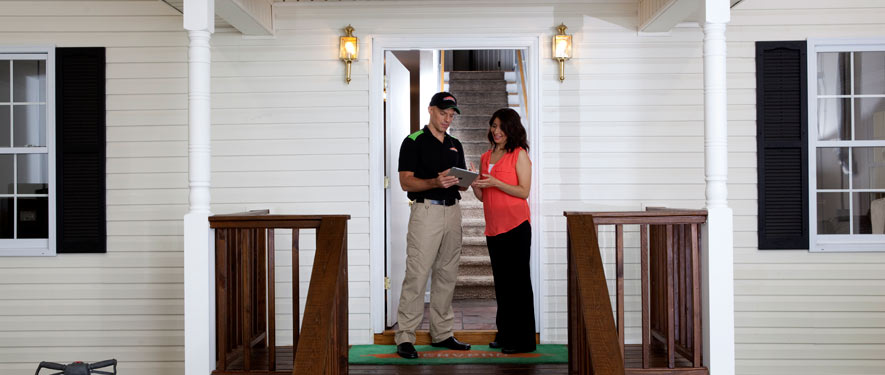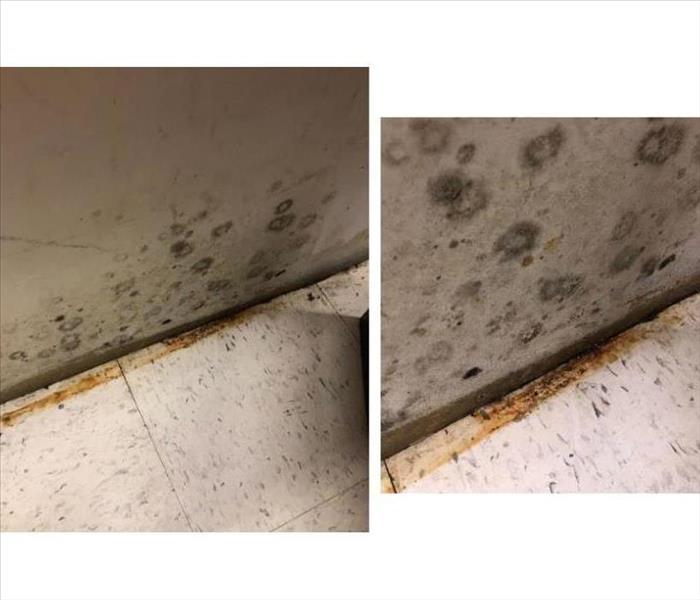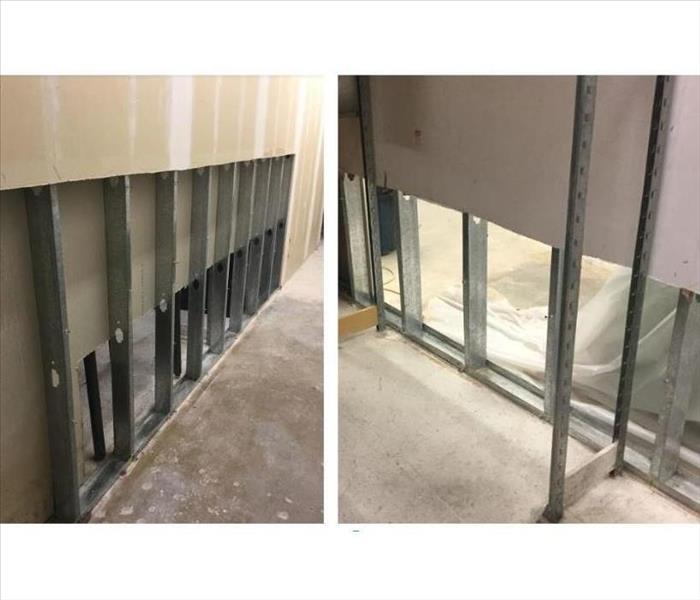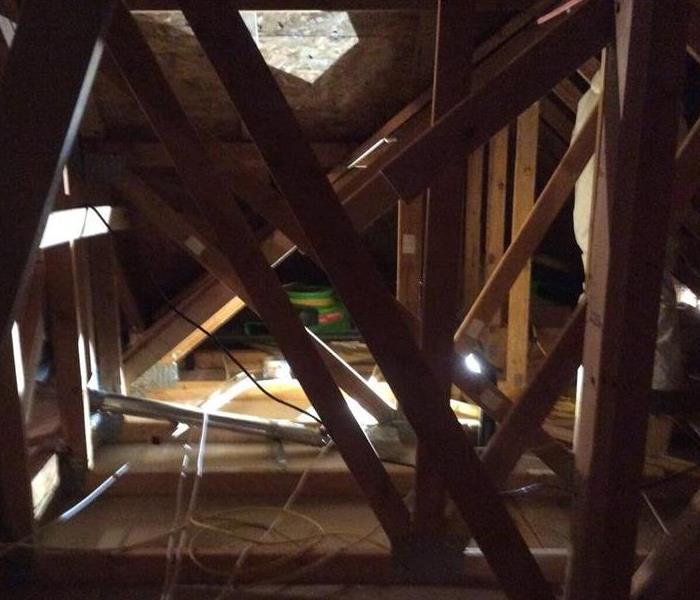
What Is Black Mold?
You may have seen sensational news reports that warn about the dangers of “black mold” or “toxic mold”. These reports can be alarming and confusing, so it’s beneficial to get the facts to better understand mold.
Black mold isn't always jet black; it can also be dark green in color. It thrives in cellulose-rich environments, including building materials such as those present in ceilings, floors and walls, especially where there is significant water damage or other moisture present.
While often referred to as "toxic mold", there actually isn't any evidence that black mold causes any serious medical conditions such as cancer or lung disease, but it is more dangerous than other types of mold. Mold is a type of fungus that exists everywhere, and the effects of black mold as well as other types of mold will differ from person-to-person. Some people, especially those with a respiratory condition such as asthma, may find themselves reacting worse to mold spores than others.
Black mold can be particularly harmful for older people, children, and those with pre-existing respiratory conditions or weak immune systems. Besides black mold, all other types of mold release allergens and mycotoxins that can be hazardous for an otherwise healthy adult.
Black mold, although not as deadly as some make it out to be, still poses a considerable threat, and is only going to get worse over time. If you need mold remediation services, call SERVPRO of Denver West (303)576-6868.
Learn more about mold and what to do until help arrives by visiting Mold Damage Tips.
How Do I Tell If It’s Black Mold?
Since many types of mold can cause reactions, you should contact us regardless of the color or type of mold. In many instances, multiple types of mold may exist in the same house or structure. If you suspect you have a mold problem, contact SERVPRO of Denver West immediately.
If You See Signs of Mold, Call Us Today – 303-576-6868
Understanding Mold
When water intrudes into your property, mold growth can start in as little as 48 hours. Consider the following mold facts:
- Mold is present almost everywhere, indoors and outdoors.
- Mold spores are microscopic, float along in the air, and may enter your home through windows, doors, or AC/heating systems or even hitch a ride indoors on your clothing or a pet.
- Mold spores thrive on moisture. Mold spores can quickly grow into colonies when exposed to water. These colonies may produce allergens and irritants.
- Before mold remediation can begin, any sources of water or moisture must be addressed. Otherwise the mold may return.
- Mold often produces a strong, musty odor, and that odor can lead you to possible mold problem areas.
- Even higher-than-normal indoor humidity can support mold growth. Keep indoor humidity below 45 percent.
Locally Owned Company with National Resources
SERVPRO of Denver West is locally owned and operated—so we live and work here too and are proud to be part of this community. We are also part of a national network of over 2,200 Franchises with special Disaster Recovery Teams placed strategically throughout the country to respond to large-scale disasters.
We are proud to serve our local communities:
- Denver
- Aurora
- Cherry Creek
- Castle Rock
- Parker
- Englewood
- Littleton
- Centennial
- Foxfield
- Greenwood Village
- Buckley Air National Guard Base






 24/7 Emergency Service
24/7 Emergency Service





